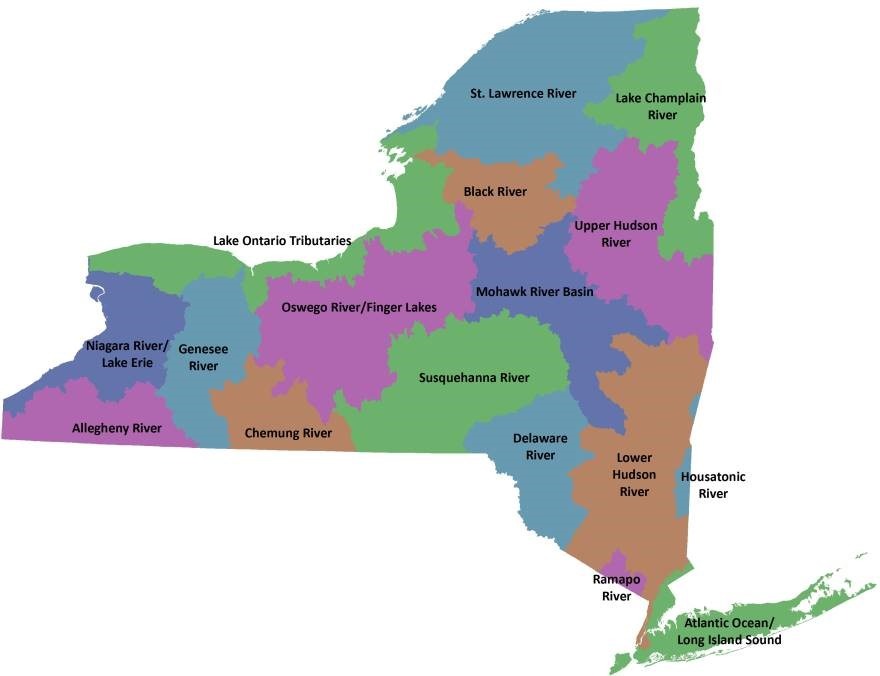New York Celebrates Water Week, May 1st – 5th
 For the past 30+ years, New York State has dedicated the first full week in May to focus on its water resources, draw attention to water issues and encourage environmental stewardship. The theme of this year’s water week is “Nonpoint Source Pollution”, which is the leading cause of water quality issues impacting drinking water supplies, recreation, fisheries and wildlife. This year is the 30th anniversary of the Clean Water Act of 1987 amendment that added Section 319, which requires states to take an active role in the regulation of nonpoint source pollution and provides federal funding for DEC for activities, including technical guidance, training and monitoring.
For the past 30+ years, New York State has dedicated the first full week in May to focus on its water resources, draw attention to water issues and encourage environmental stewardship. The theme of this year’s water week is “Nonpoint Source Pollution”, which is the leading cause of water quality issues impacting drinking water supplies, recreation, fisheries and wildlife. This year is the 30th anniversary of the Clean Water Act of 1987 amendment that added Section 319, which requires states to take an active role in the regulation of nonpoint source pollution and provides federal funding for DEC for activities, including technical guidance, training and monitoring.
Nonpoint source pollution is caused by rainfall and/or snowmelt moving over and through the ground. As runoff flows over the ground surface, it picks up and carries away natural and man-made pollutants before depositing them into lakes, rivers, wetlands and other waterbodies.
C.T. Male Associates provides consultation services which can help to control nonpoint source pollution and ultimately protect waterbodies from sedimentation and contamination. These include, but are not limited to, preparation of erosion and sediment control plans, as well as the design of stormwater management and low impact development (LID) practices. These practices help to infiltrate and/or detain stormwater runoff, thereby reducing the amount of pollutants which are released into nearby waterbodies.
There are many steps that you can take to prevent nonpoint source pollutants from contaminating our valuable waterbodies:
- Keep litter, pet wastes, leaves and debris out of street gutters and storm drains—these outlets drain directly to lake, streams, rivers and wetlands.
- Apply lawn and garden chemicals sparingly and according to directions.
- Dispose of used oil, antifreeze, paints and other household chemicals properly—not in storm sewers or drains. If your community does not already have a program for collecting household hazardous wastes, ask your local government to establish one.
- Clean up spilled brake fluid, oil, grease and antifreeze. Do not hose them into the street where they can eventually reach local streams and lakes.
- Control soil erosion on your property by planting ground cover and stabilizing erosion-prone areas.
- Encourage local government officials to develop construction erosion and sediment control ordinances in your community.
- Have your septic system inspected and pumped, at a minimum every three to five years, so that it operates properly.
- Purchase household detergents and cleaners that are low in phosphorous to reduce the amount of nutrients discharged into our lakes, streams and coastal waters.
